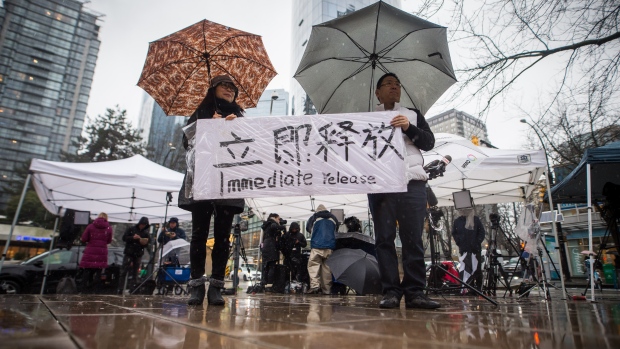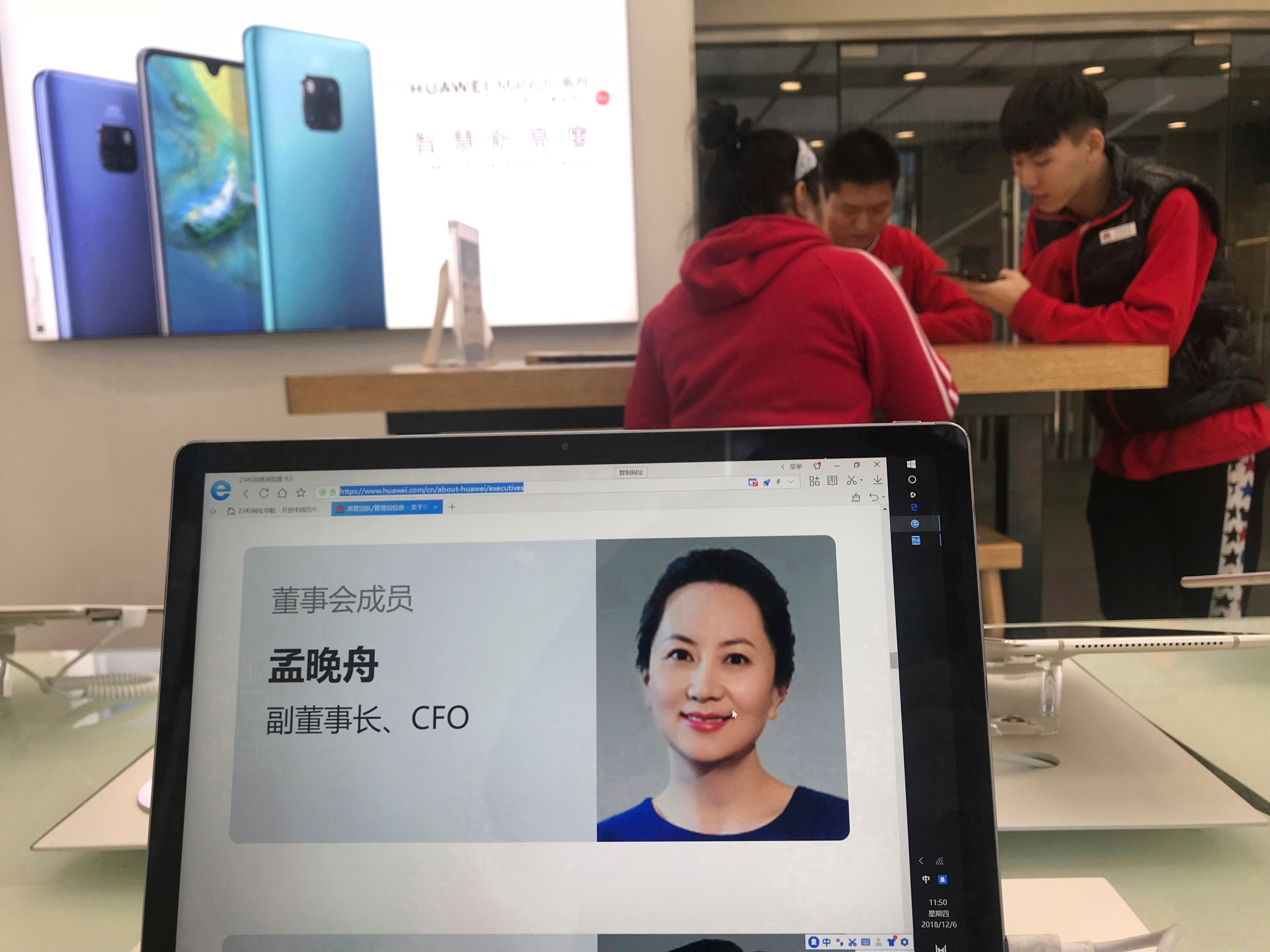Dec 11, 2018
Huawei CFO granted bail by Vancouver judge
, Bloomberg News

Huawei Technologies Co. Chief Financial Officer Meng Wanzhou was granted bail by a Canadian court, allowing the executive to stay in her Vancouver home as she awaits a possible extradition to the U.S. over fraud charges.
Justice William Ehrcke of the British Columbia Supreme Court agreed to release Meng after four former colleagues and friends joined her husband in pledging a combined $10 million (US$7.5 million) in cash and home equity to support her bail request. By agreeing to act as “sureties,” the five people commit to ensuring she doesn’t flee and abides by other bail terms.
Meng, 46, will be subject to surveillance at her Vancouver home by a combination of security guards and technology as part of the agreement, and surrender her Chinese and Hong Kong passports. Meng broke into tears and wiped her eyes upon on the announcement from the judge. The viewing gallery applauded.
Ehrcke said the “sole” question in relation to bail was whether Meng had proposed sufficient terms to offset the risk that she might flee the country before the extradition proceedings. The judge ordered Meng to remain in a restricted area of Vancouver, wear a GPS tracker, pay for the security surveillance and agree to unannounced visits by police at her home. She won’t be released from custody until she fulfills the terms of the bail.
Meng was arrested Dec. 1 at the request of U.S. authorities as she changed planes in Vancouver on her way to Mexico. The mother of four is accused of conspiring to defraud banks to unwittingly clear transactions linked to Iran, in violation of U.S. sanctions. The U.S. has 60 days from the arrest date to turn over its full extradition case with supporting evidence.
Meng’s lawyers argued their client has no criminal record, cited high-profile character witnesses to vouch for her, and said she has substantive ties that ensure she would remain in Vancouver. Meng spends a couple weeks every summer in Vancouver and her family has two homes in the Pacific Coast city assessed at a combined $20 million in the Pacific Coast city. The lawyers also cited health issues, including daily medication, to argue for her release from a Vancouver-area detention center.
Her arrest has sparked protests by the Chinese government, which says Meng committed no crime. She is the daughter of Ren Zhengfei, the founder of Huawei, one of the world’s biggest makers of smartphones and networking equipment. The case has shaken global financial markets and threatened the fragile trade relationship between the U.S. and China.
The bail hearing over three days hinged on the validity of the sureties, or guarantors. Ehrcke cast doubts about Meng’s husband, Liu Xiaozong, serving as sole surety, since he doesn’t have Canadian residency.
.
During Tuesday’s hearing, Meng’s lawyer, David Martin, put up four additional candidates, including a realtor for the couple’s properties in Vancouver; a former Huawei employee; a homemaker whose husband once worked for Huawei; and a part-time yoga instructor. Those four put up a combined $3 million in cash and home equity, adding to Liu’s $7 million.
The decision is the start of a long legal process in Canada that could end with Meng being sent to the U.S. to stand trial. Even though the North American neighbors have a longstanding treaty governing extradition, it can take months, even years, for a defendant to be handed over, if at all.
At some point, American authorities will have to reveal at least some evidence to justify the request to have Meng turned over and to show why they believe she committed a crime. A potentially thornier issue is whether Meng’s alleged transgressions were illegal in both the U.S. and Canada.
The U.S. has accused Meng of hiding ties between Huawei and a company called Skycom that did business in Iran, violating international sanctions.
Canada has an Iranian-sanctions policy, but it’s less clear if violations are enforced through the country’s criminal code. Sanctions violations aren’t among the extraditable crimes described in the treaty, though there are provisions for fraud by a corporate officer and receiving proceeds from illegal activity.
- with files from BNN Bloomberg
WEIGH IN





